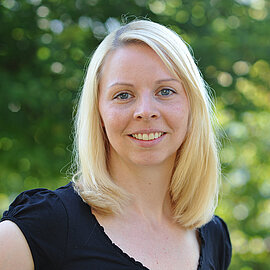Under the title “The methodology of the EU Commission to evaluate the impact of direct payments”, IAMO Visiting Research Fellow Ulrich Koester and researcher Jens-Peter Loy, both professors in the Department of Agricultural Economics at the University of Kiel, published the current IAMO Policy Brief. The authors investigate whether the evaluation applied by the European Commission is adequate to measure the impact of direct payments on the officially stated policy objectives of the Common Agricultural Policy (CAP). The Commission has not presented a clear definition of the objectives. Moreover, the use of indicators does not inform on the causal impact of the policy intervention on the changes in the policy objectives.
The European Commission applies a new methodology to evaluate its policy measures. EU Regulation No. 1306/2013 of the European Parliament and the Council requires that the Commission evaluates the impact of specific measures, in particular the effects of direct payments. The legislation also defines the objectives used in carrying out the evaluation. As direct payments make up the largest share of the CAP expenditures, the authors of the report, agricultural economists Ulrich Koester and Jens-Peter Loy, investigate whether the new methodology is adequate.
The findings of the report show that the methodology of the Commission does not provide the relevant information to evaluate the EU direct income payments. The objectives are not well defined in qualitative and quantitative terms. Hence, we cannot conclude whether a policy intervention is justified based on the identified gap between the desired and the actual situation. It is also not possible to clarify whether direct payments have contributed to a positive change of the objective variables. The Commission based its analysis on impact indicators which should reflect the impact of the policy. However, these indicators do not inform on the causal relationship between policy intervention and policy objectives. The change of policy objectives may have occurred due to a number of other reasons. Finally, the Commission limits itself on investigating the possible contribution to the achievement of the policy intervention. The procedure completely neglects the economic costs of the policy. Based on their analysis the authors conclude that the Commission’s methodology is not adequate with respect to the task defined by European laws. The report provides a road map for an adequate evaluation. This roadmap is in line with procedures used by other international organisations and professional economists.
Text: 2,786 characters (incl. spaces)
IAMO Policy Brief 26
Koester, Ulrich; Loy, Jens-Peter (2016): The methodology of the EU Commission to evaluate the impact of direct payments. IAMO Policy Brief No. 26, Halle (Saale).
IAMO Policy Briefs
IAMO conducts research on important agricultural policies. In our IAMO Policy Briefs we share our take on the researched issues. In this series of publications, we elaborate briefly and in comprehensive language on various topics, which are relevant for today's society. We hope to involve the interested public in these topics as well as decision makers in politics, the economy and the media. Since 2011, we offered IAMO Policy Briefs without regular schedule.

